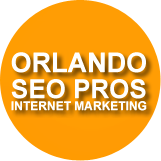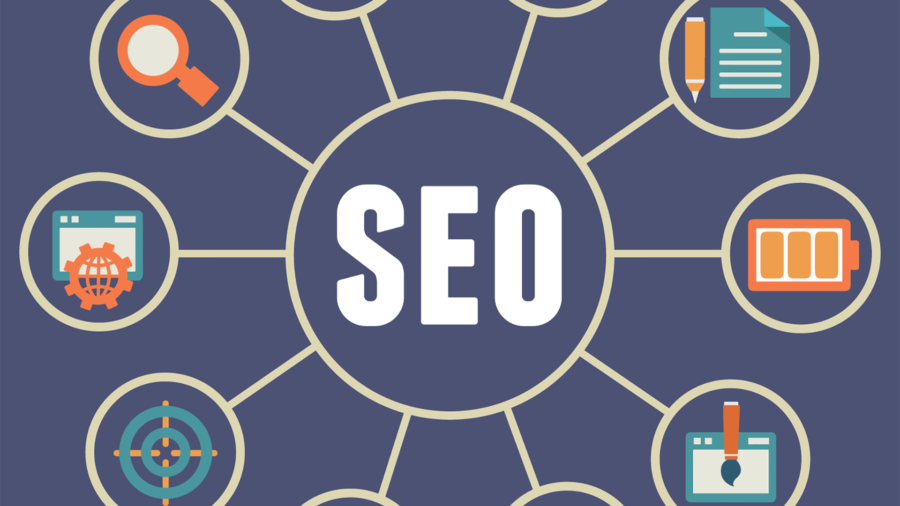Are you down with PPC and unsure of where or how search engine optimization fits into the digital marketing mix? Better yet, do you need to add both pay-per-click and SEO to your overall marketing plan? Looking at the two, it’s understandable why it might seem confusing. In fact, with as many acronyms as there are floating around the digital marketing realm – PPC, SEO, SMM, SERP, Guest blogging and etc., it almost sounds like we’re proposing a bowl of alphabet soup – hot, steamy and full of broth. Yet, from a marketing perspective, those noodles are really two sides of the same plan.
Pay-per-click or other forms of paid advertising are essential for any brand looking to garner some much needed attention and traffic be it to your website or physical location. And with a reported 9.97 billion U.S. Google searches in July 2019 alone, it’s easy to see why getting your overall digital marketing plan right matters. While paid advertising certainly fills some admirable shoes, SEO is also essential to boost your brand and heighten your industry authority, and even generate more leads, but sometimes the “Why” behind it gets a little fuzzy. So, let’s dive in and clear the path.
What is SEO?
Search engine optimization, or SEO as it’s more commonly known, is the practice of increasing your brand’s online presence through organic search engine results. SEO also helps you to increase the quality and the quantity of your website visitors, which brings your business more visitors, more leads, and more customers.
SEO is based, in part, on the keywords that your audience searches for. So, keywords are part of SEO, but so too are meta tags, title tags, headers, link-building, and alt image attributes. It makes content creation sound like a lot of technical work, but it’s easier than you think. One key component is having quality content that speaks to your audience and anticipates their needs and questions.
SEO content has come a long way from where it began and today’s optimized content is designed to read in an educational, but the conversational tone, depending on your audience. If your audience likes visual content or video content, you need to optimize your YouTube channel or website to better engage your audience. In fact, SEO efforts today should flow seamlessly in your content. The days of keyword and link stuffing are over and search engines and audiences respond better to the quality of your content than ever before. This brings us to our next concern – white hat versus black hat SEO.
Recommended For You Webcast, November 27th: Why Podcasting is the Ultimate ABM Strategy
Register Now
Does The Hat Matter?
Hold the phone! What do hats have to do with SEO? Quite a bit, actually. SEO is grouped into two different hats – black hat and white hat. Knowing the difference is important for your digital marketing success.
There was a time when marketers would boost the density of the keywords in your content or the number of links attached. So, too, have other less savory marketing methods been employed, which gave content marketing and other digital marketing a bad rap. At the time, these tactics initially helped increase page rankings, but did little to drive leads and conversion. Today, these methods are debunked, but not non-existent. Two forms of black hat SEO, keyword or link stuffing, can lead to the search engines penalizing you today and blessing your website with negative rankings. Or worse yet, your website could even risk getting banned by the search engines. So, getting your SEO done right is important.
As previously mentioned, black hat SEO methods are still out there and they involve using means that attempt to “trick” the search engine crawlers by violating the search engine terms of service. All of this and for what? To boost your rankings in the search engine results pages. You see, black hat SEO optimizes your website and content specifically for search engines, not your audience. The problem is that search engine algorithms are always changing and once the web crawlers that skim over your published content discover the black hat SEO, your content rankings will be penalized or your website and content is at risk of getting banned. It’s far better to opt for white hat SEO instead.
White hat SEO, on the other hand, uses different techniques to optimize your website and content. Instead of focusing on optimizing your content for search engines, white hat SEO hones in on your audience, which is what you should be optimizing for anyway. White hat SEO is also considered the most ethical approach to SEO and includes such methods such as link building and sharing, keyword usage, analysis, title and meta data tags, and more. When you focus on your audience and what they are searching for, and you provide high-quality, value-driven content to meet their needs, you’re on track for SEO success.
SEO or PPC?
Which should you invest in, SEO or PPC, to get the most bang out of your digital marketing buck? The answer is both. Here’s the thing. SEO and PPC are two different sides of the same team. In other words, they serve two different, but important functions of marketing.
Paid marketing and SEO serve two very different audiences. PPC is geared toward your “unbranded” audience. You can think of this group as those people who are likely to buy your product or service if only they knew you existed. SEO, on the other hand, targets your “branded” audience. These are the people who have an existing relationship of some kind with your brand. They’re familiar with the brand. Perhaps they have tried your products and services already. Or, maybe they are existing and repeat customers. So, to get the most attention, you need a mix of both SEO and PPC or you risk missing out on the combination of traffic and leads that each group brings to the table.
There’s no question that SEO plays a vital role in digital marketing. The only question is finding the right SEO for your business needs. An experienced SEO professional can evaluate your business needs to recommend the best SEO methods to help you reach your goals. This is not something you should attempt on your own or hand over to someone with little or no SEO knowledge. The best outcomes are gained through the use of industry experts. So, are you ready to don that white hat and reach new digital marketing heights?

